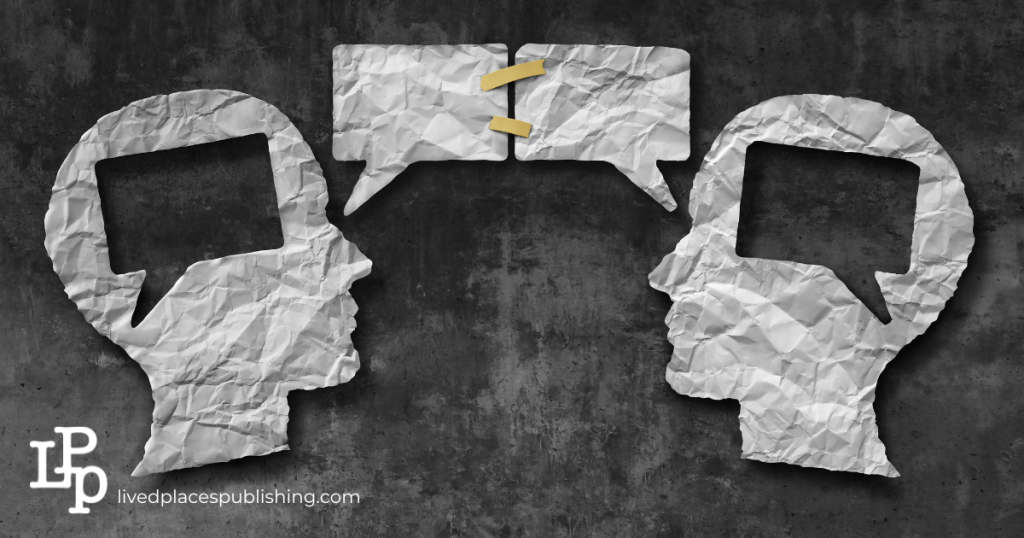Human intelligence and artificial intelligence have been progressing in parallel for a number years (though human intelligence had a heck of a head start!) and will be progressing in parallel for the foreseeable future. As a longtime reader and fan of Ray Kurzweil,1 I believe these parallel paths will eventually merge and the distinction between “human” and “artificial” will be rendered meaningless. I do not think anybody can predict when humans will become cyborgs, though Kurzweil suggests 2045. In the meantime, we would do well to celebrate that which is uniquely human while recognizing and benefiting from the gains humans will achieve with artificial intelligence.
The teaching and learning world and the scholarly and educational publishing world, both of which I am a participant in and commentator on, have been, in my view, inflamed with worry at the “sudden” rise of ChatGPT, large language models, and generative artificial intelligence. I share some of these concerns to be sure, but there are uniquely human contributions to be celebrated. On one end of the discussion about ChatGPT in scholarly communication and teaching, I see commentators pointing to the obvious errors it produces (some potentially very harmful). I think this is a risky position to take because AI technology has the potential to improve much faster than we can predict and may “figure out” how to be quite accurate. On the other end of the discussion, I read of those extolling the value of the “human creator” over the artificial to a degree that feels a bit Ludditeish. In many realms, AI-generated original content will be more than “good enough” and even better than human generated content. However, returning to my opening line about the human and the artificial moving in parallel, I prefer to take a path that neither celebrates nor dismisses the impact of artificial intelligence in our space.
I will leave this discussion to others. I prefer, as a publisher and educator, to focus on the unique contribution human intelligence will continue to make in our collective space for the foreseeable future and focus on how AI will support and enhance the uniquely human. In what follows I will focus just on the uniquely human contributions I feel we must focus on and celebrate:
Content produced by generative large language models (LLMs) is not real.
The importance of and need for true, human stories to increase empathy and improve teaching cannot be understated. A course in border and migration studies that introduces the real, lived experiences of three refugees from Sudan, Syria, and Myanmar should not be replaced by AI. Of course, we could ask ChatGPT to “write me story about refugees from Sudan, Syria, and Myanmar” and ChatGPT will produce fiction of reasonable but unremarkable quality. And other AI solutions can render “photos” of the refugees and the situations they encounter in their forced migration paths. But we need real, human stories. We need connection and we need the rich tapestry of human lived experience in order to teach fully and to learn deeply.
Content produced by ChatGPT and other LLMs is developed through sophisticated algorithms, but it is constrained brilliance.
ChatGPT and similar technology attempts to predict the next word and sequences of words based on prompts. These AI models are trained on billions of items available across the web. The connections are, therefore, predictive and by extension predictable. Returning to the story prompt described above, “Write me a story about refugees from Sudan, Syria, and Myanmar.” If you enter this into ChatGPT (go ahead, do it!) you will get a story, but it will not surprise you with any quirky inventiveness or hugely unpredictable outcomes like a topnotch fiction author can.
When I was editor-in-chief for Pearson Education business publishing, I had the good fortune of supporting a campus visit of marketing professor, author, and legend Phil Kotler. During the visit, Phil met with a group of 10 to 15 marketing Ph.D. students to share lunch and discuss their dissertation projects. Phil started with the first student on the left and proceeded around the table. He asked each to describe their research and early findings. As each student completed their discussion Phil offered suggested resources to read and general suggestions. By the fifth student Phil was making connections back and forth across all the Ph.D. students’ work and to a broader set of ideas from fields in science, mathematics, anthropology, linguistics, and on and on. Phil Kotler is a genius and his specific genius shown through; that is Phil was able to weave together disparate and disconnected fields of knowledge into a coherent whole with deep meaning for these marketing students. AI will improve and the output will improve, but there is a unique serendipity in human genius that must be preserved and appreciated. Or, put another way, will you put your money on Lewis Hamilton or self-driving technology in the next Formula One race?
Content produced by AI is informed by what is available on the web.
This is an obvious statement. There is a lot of wrong information on the web. There is a tremendous amount of incendiary opinion on the web. There is virtually no curation, validation, and vetting of the content on the web. AI models, through the development of guiding algorithm logic, are trained to reject and accept information and to value some sources over others, but they can and do propagate false information and often produce alternative results depending on the day the question is asked and entered in the AI tool. This is not to say that humans do not generate false information, changing results, and incendiary opinions; of course, we do as we humans are the primary creators of the content ChatGPT was trained on. But there is much to be recommended by the human subject expert, the human knowledge curator, the ethical compass, be that as it may be, of the teacher. And, considering where this opinion piece began, the experience, the lived experience between two humans considering, assessing, and arriving at a conclusion together: student and teacher. This is, at least until we are cyborgs, an experience to be cherished.
–
Endnotes:
Image Credit:
- geralt on Pixabay used under the Pixabay content license, Creative Commons Zero (CC0).
Learning Belongs in the Library — ChatGPT in Teaching, Learning, and Scholarly Communication: Celebrating the Uniquely Human originally published by Against the Grain on Sep 23, 2023.



